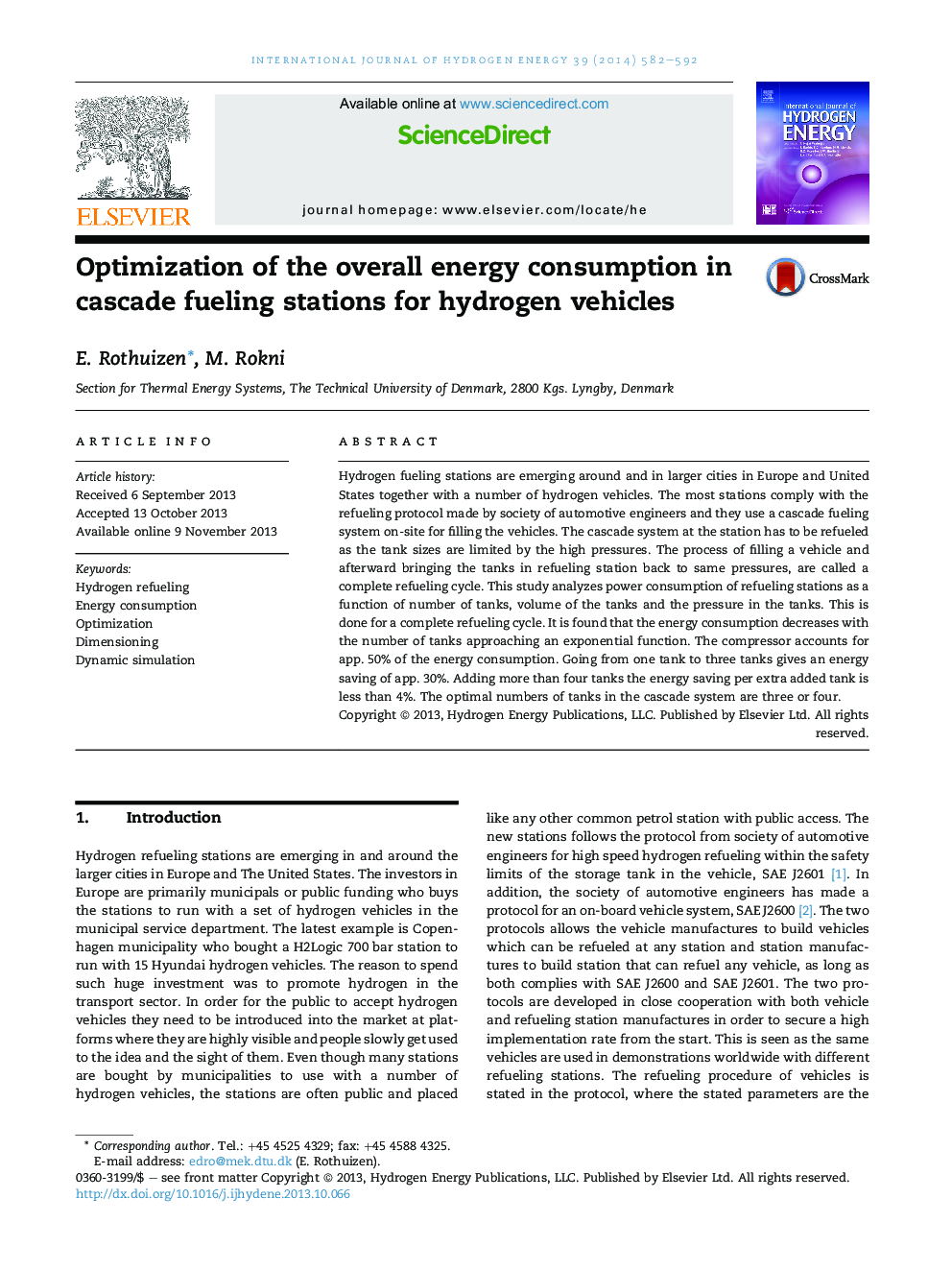| کد مقاله | کد نشریه | سال انتشار | مقاله انگلیسی | نسخه تمام متن |
|---|---|---|---|---|
| 1273970 | 1497508 | 2014 | 11 صفحه PDF | دانلود رایگان |
• Thermodynamic simulation model for analysis of high pressure hydrogen refueling.
• Energy consumption of cascade refueling systems with different number of tanks.
• Multiple tanks at different pressures reduce energy consumption significantly.
• Compression accounts for half of the energy usage for a complete refueling cycle.
• Three to four tanks are properly the optimal amount in a cascade refueling system.
Hydrogen fueling stations are emerging around and in larger cities in Europe and United States together with a number of hydrogen vehicles. The most stations comply with the refueling protocol made by society of automotive engineers and they use a cascade fueling system on-site for filling the vehicles. The cascade system at the station has to be refueled as the tank sizes are limited by the high pressures. The process of filling a vehicle and afterward bringing the tanks in refueling station back to same pressures, are called a complete refueling cycle. This study analyzes power consumption of refueling stations as a function of number of tanks, volume of the tanks and the pressure in the tanks. This is done for a complete refueling cycle. It is found that the energy consumption decreases with the number of tanks approaching an exponential function. The compressor accounts for app. 50% of the energy consumption. Going from one tank to three tanks gives an energy saving of app. 30%. Adding more than four tanks the energy saving per extra added tank is less than 4%. The optimal numbers of tanks in the cascade system are three or four.
Journal: International Journal of Hydrogen Energy - Volume 39, Issue 1, 2 January 2014, Pages 582–592
